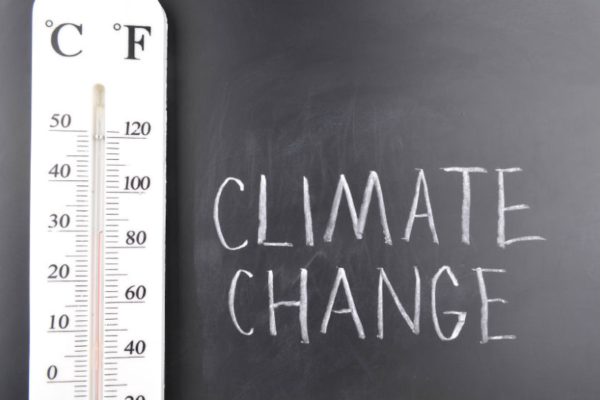A mourning orca whale recently carried the body of her calf for 17 days after its death — an extended funeral procession brought on by the stress of human encroachment, warming ocean temperatures and a dwindling food supply.
In a way, it’s easy to imagine that the natural world is staging its own wake.
Wild fires raging from California to Greece don’t help assuage the despair. Nor does the fact that day “zero” looms in Cape Town when that city may run out of drinking water. Or that northern Europe continues to suffer from one of the longest and most excessive heat waves in modern history.
Each day, it seems that there is something new related to climate change. But how do we stop it? How do we quell “climate anxiety” or fight from falling into climate despair?
Simply put, more of us need hope. Hope can help us inspire real solutions and productive reactions to climate change.
Optimism needs to be distinguished from hope. Much of the optimism surrounding climate change is dominated by technological imaginaries and proposals such as geoengineering the planet through solar radiation management.
This techno-optimism is often, to quote from Vaclav Havel’s poem “Hope,” “the conviction that something will turn out well.” But when this impulse becomes another way of greening “business as usual,” it conveys an unwarranted confidence and can smack at times of a mythic belief that technology will magically solve the climate crisis.
To be clear, we do need technological innovation — but the climate crisis will not be solved by technology alone. We need to shift political and government attention away from a narrow techno-optimistic focus and toward a culture that asks deeper ethical questions about the nature of a “good life” and “good society.”
Conversations needed for the cultivation of hope differ from the blind optimism that we will find technological solutions. Whereas the latter are expert-led, elite-centered and usually top-down in implementation (and therefore with limited, if no, democratic involvement of citizens), the cultivation of radical hope in the face of climate change requires the democratic mobilization of citizens and the encouragement and support for social innovation.
Climate scientist Mike Hulme suggests that climate change is not simply a matter of what we can do to the climate. It is also what the climate can do for us in terms of providing new opportunities for social change, new forms of technological innovation, and how responses to climate change might spark paradigm shifts in terms of how we conceptualize and live the “good life” in the 21st century.
We can start by asking questions and educating ourselves, not just about the climate, but also about how people in the past confronted seemingly intractable problems. Learning that history can help us understand how we can have hope for the future as we grapple with dramatic changes to our environment. It can also alert us to how those changes may alter our existing social and political frameworks and their associated practices and values.
This way of thinking about the issue opens a wide vista of social innovations, behavioral change and political, cultural and economic developments beyond technology. Hope rests not on technology or despair, or even activism alone, but on an engagement with the possibilities for how a combination of real social, cultural and political change might be imagined, instigate and sustained.
Hope is more difficult than optimism, but its results are more enduring and much more amenable to democratizing visions and practices of positive future as it can help us move forward.
Proverbs 29:18 says: “Where there is no vision, the people perish.” In the face of climate change where it is not only “the people” but future generations and the nonhuman world that are threatened, a shared vision based on collective and radical hope is needed more than ever.
Not only are we “the people we’ve been waiting for,” we also already have the resources we need to make the world a better place. The question becomes: Why are we waiting?
Erika Bsumek is the Eugene C. Barker Centennial Professor in American History at The Universtiy of Texas at Austin.
John Barry is a professor of green political economy at Queens University Belfast.
A version of this op-ed appeared in the Austin American Statesman.
To view more op-eds from Texas Perspectives, click here.
Like us on Facebook.




